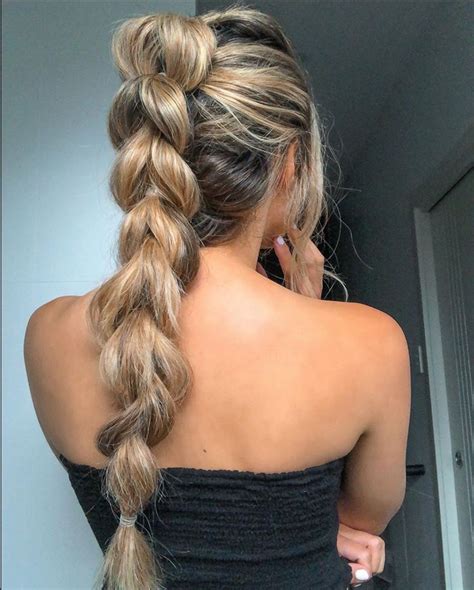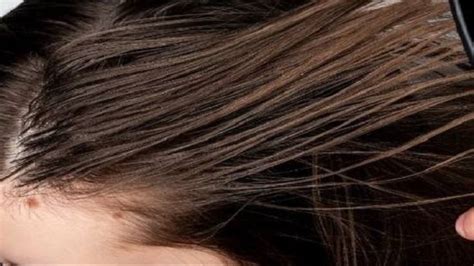1. The Power of Avocado for Dry, Damaged Hair
Avocados, known for their high fatty acid content, offer intense hydration and nourishment to dry, damaged hair.

Ingredients:
– 1 ripe avocado
– 1/4 cup coconut oil
– 1 tablespoon honey
Method:
1. Mash the avocado until smooth.
2. Add the coconut oil and honey and mix well.
3. Apply generously to hair and leave for 30 minutes.
4. Rinse with warm water and shampoo as usual.
Benefits:
– Moisturizes and softens dry, brittle hair
– Repairs split ends and damage caused by heat styling
– Promotes hair growth and reduces breakage
2. Honey and Yogurt: A Clarifying and Smoothing Treat
Honey’s antibacterial properties and yogurt’s lactic acid work together to cleanse and smoothen hair, leaving it soft and manageable.
Ingredients:
– 1/2 cup Greek yogurt
– 1/4 cup honey
– 1 tablespoon apple cider vinegar
Method:
1. Combine all ingredients in a bowl and stir until smooth.
2. Apply to wet hair and leave for 15-20 minutes.
3. Rinse thoroughly with warm water and shampoo.
Benefits:
– Removes product buildup and dirt, leaving hair refreshed
– Smoothes frizz and promotes shine
– Strengthens hair follicles and reduces split ends
3. Banana, Egg, and Olive Oil: A Superfood Trio for Growth
Bananas, eggs, and olive oil are rich in vitamins, minerals, and antioxidants, providing essential nutrients for healthy hair growth.
Ingredients:
– 1 ripe banana
– 1 large egg
– 2 tablespoons olive oil
– 1 teaspoon honey
Method:
1. Mash the banana until smooth.
2. In a separate bowl, whisk the egg and honey together.
3. Add the olive oil and banana puree to the egg mixture and mix well.
4. Apply to hair and leave for 30-45 minutes.
5. Rinse with warm water and shampoo.
Benefits:
– Promotes hair growth by stimulating blood circulation
– Strengthens hair shafts, reducing breakage
– Adds volume and shine to dull, lifeless hair
4. Coconut Milk and Almond Oil: A Hydrating and Nourishing Elixir
Coconut milk’s fatty acids and almond oil’s vitamin E combine to provide deep hydration and nourishment to dry, unruly hair.
Ingredients:
– 1 can (13.5 oz) coconut milk
– 1/4 cup almond oil
– 1 tablespoon shea butter (optional)
Method:
1. Heat the coconut milk and shea butter (if using) in a saucepan over medium heat until just melted.
2. Remove from heat and whisk in the almond oil.
3. Apply to hair and leave for 20-30 minutes.
4. Rinse with warm water and shampoo.
Benefits:
– Deeply hydrates and softens hair without weighing it down
– Reduces frizz and improves manageability
– Strengthens hair roots and prevents breakage
5. Argan Oil and Moringa: A Restorative and Anti-Aging Duo
Argan oil, rich in antioxidants and vitamin E, and moringa, a superfood packed with nutrients, work synergistically to restore and rejuvenate aging hair.
Ingredients:
– 2 tablespoons argan oil
– 1/2 cup moringa powder
– 1/4 cup water
– 1 teaspoon rosemary essential oil (optional)
Method:
1. In a small bowl, combine the moringa powder and water to form a paste.
2. Add the argan oil and rosemary essential oil (if using) and stir well.
3. Apply to hair and leave for 15-20 minutes.
4. Rinse with warm water and shampoo.
Benefits:
– Reverses hair damage caused by environmental stressors
– Promotes hair growth and reduces thinning
– Protects against hair loss and premature aging
Why Make-at-Home Hair Masks Matter
- Cost-effective: Homemade hair masks are much more affordable than salon treatments.
- Customized: You can tailor your hair mask to your specific hair type and needs.
- Natural and gentle: Homemade masks are free of harsh chemicals and preservatives, making them gentle on your hair.
- Convenient: You can create and apply your own hair masks in the comfort of your own home.
Benefits of Using Make-at-Home Hair Masks
- Improved hair health: Hair masks nourish and hydrate hair, making it stronger, healthier, and more manageable.
- Reduced hair damage: Masks can protect hair from damage caused by heat styling, environmental stressors, and chemical treatments.
- Hair growth promotion: Some hair masks contain ingredients that stimulate hair growth and reduce breakage.
- Enhanced shine and luster: Hair masks can restore shine and luster to dull, lifeless hair.
- Stress relief: Applying a hair mask can be a relaxing and de-stressing experience.
How to Choose the Right Hair Mask for You
- Consider your hair type: Different hair types require different types of masks. For example, dry hair needs hydrating masks, while oily hair benefits from clarifying masks.
- Identify your hair concerns: Determine what your biggest hair concerns are, such as dryness, damage, or thinning. Choose masks that address those concerns.
- Look for natural ingredients: Masks made with natural ingredients are generally more gentle and effective.
- Consider the time you have: Some hair masks require longer application times than others. Choose a mask that fits your schedule.
Tips for Applying Hair Masks
- Cleanse your hair first: Apply hair masks to clean hair for optimal absorption.
- Apply evenly: Distribute the mask throughout your hair, from roots to tips.
- Leave for enough time: Most masks should be left on for at least 15 minutes for full effect.
- Rinse thoroughly: Rinse your hair thoroughly with warm water to remove the mask.
- Use regularly: Apply hair masks every 1-2 weeks for best results.
Troubleshooting Hair Mask Issues
- Mask is too dry: Add a little water or oil to the mask before applying.
- Mask is too watery: Add a little more powder or clay to thicken the mask.
- Mask is irritating: If the mask causes any irritation, rinse it off immediately and avoid using it in the future.
Conclusion
Make-at-home hair masks offer a cost-effective, customized, and natural way to improve your hair’s health and appearance. By choosing the right ingredients and following the proper application techniques, you can unlock the transformative benefits of homemade hair care.
Tables
| Mask Type | Benefits | Ingredients | Suitable for |
|---|---|---|---|
| Hydrating Mask | Moisturizes and softens hair | Avocado, coconut oil, honey | Dry, damaged hair |
| Clarifying Mask | Removes buildup and dirt | Honey, yogurt, apple cider vinegar | Oily, dull hair |
| Growth Mask | Promotes hair growth | Banana, egg, olive oil | Fine, thinning hair |
| Nourishing Mask | Deeply hydrates and nourishes hair | Coconut milk, almond oil, shea butter | Dry, unruly hair |
| Ingredient | Benefits | Type of Hair |
|---|---|---|
| Avocado | Hydrates and nourishes dry, damaged hair | Dry, damaged hair |
| Honey | Clarifies and smoothes hair | All hair types |
| Banana | Promotes hair growth | Fine, thinning hair |
| Coconut Milk | Deeply hydrates and nourishes hair | Dry, unruly hair |
| Argan Oil | Reverses hair damage and promotes growth | Aging hair |
| Moringa | Restores and rejuvenates hair | All hair types |
| Hair Type | Best Mask | Rationale |
|---|---|---|
| Dry, Damaged Hair | Avocado Mask | Provides intense hydration and nourishment |
| Oily, Dull Hair | Honey and Yogurt Mask | Removes product buildup and adds shine |
| Fine, Thinning Hair | Banana, Egg, and Olive Oil Mask | Promotes hair growth and strengthens hair follicles |
| Dry, Unruly Hair | Coconut Milk and Almond Oil Mask | Deeply hydrates and nourishes without weighing hair down |
| Aging Hair | Argan Oil and Moringa Mask | Protects against damage and promotes hair growth |
| Homemade vs. Salon Hair Masks | Pros | Cons |
|---|---|---|
| Homemade | Cost-effective, customized, and natural | Can be time-consuming to make |
| Salon | Professional results, time-saving | Expensive, less customizable |
